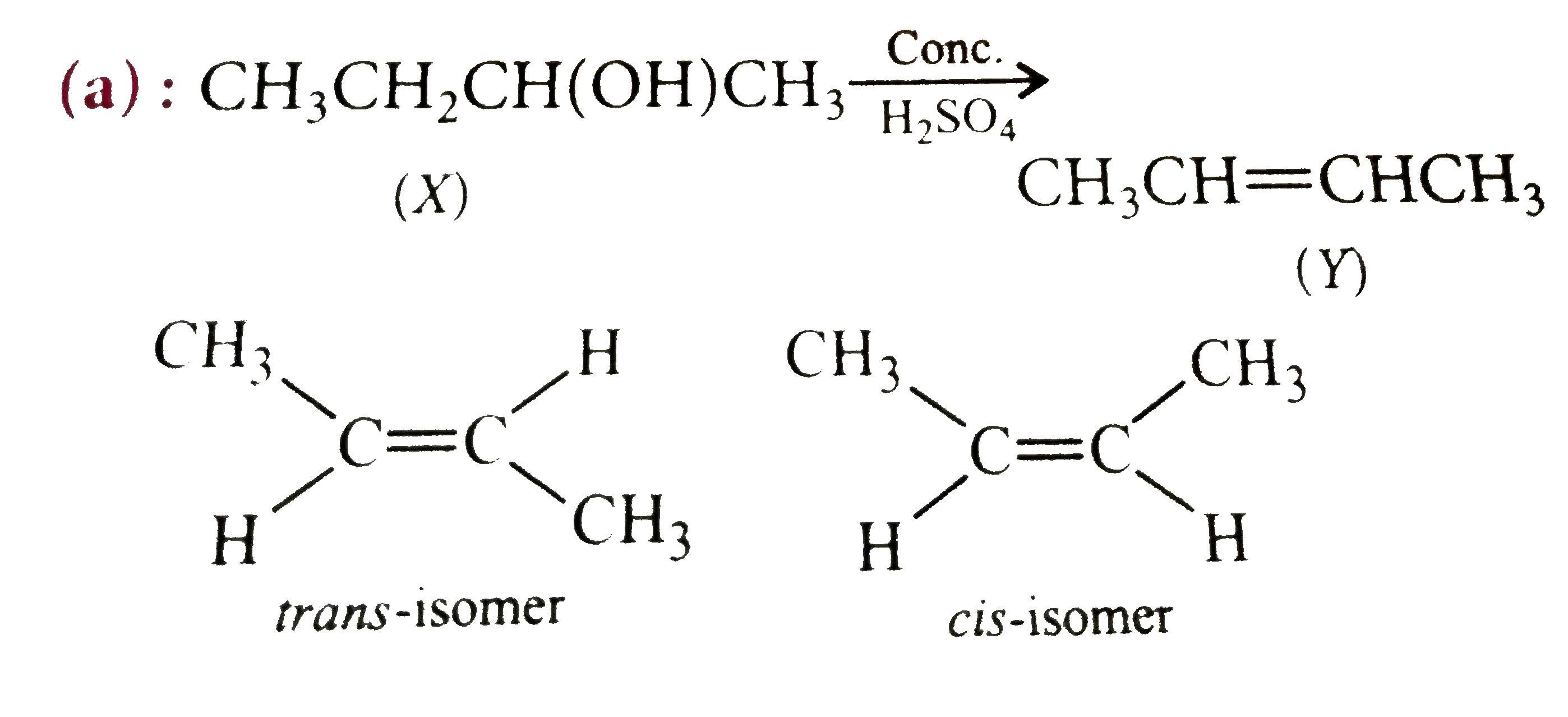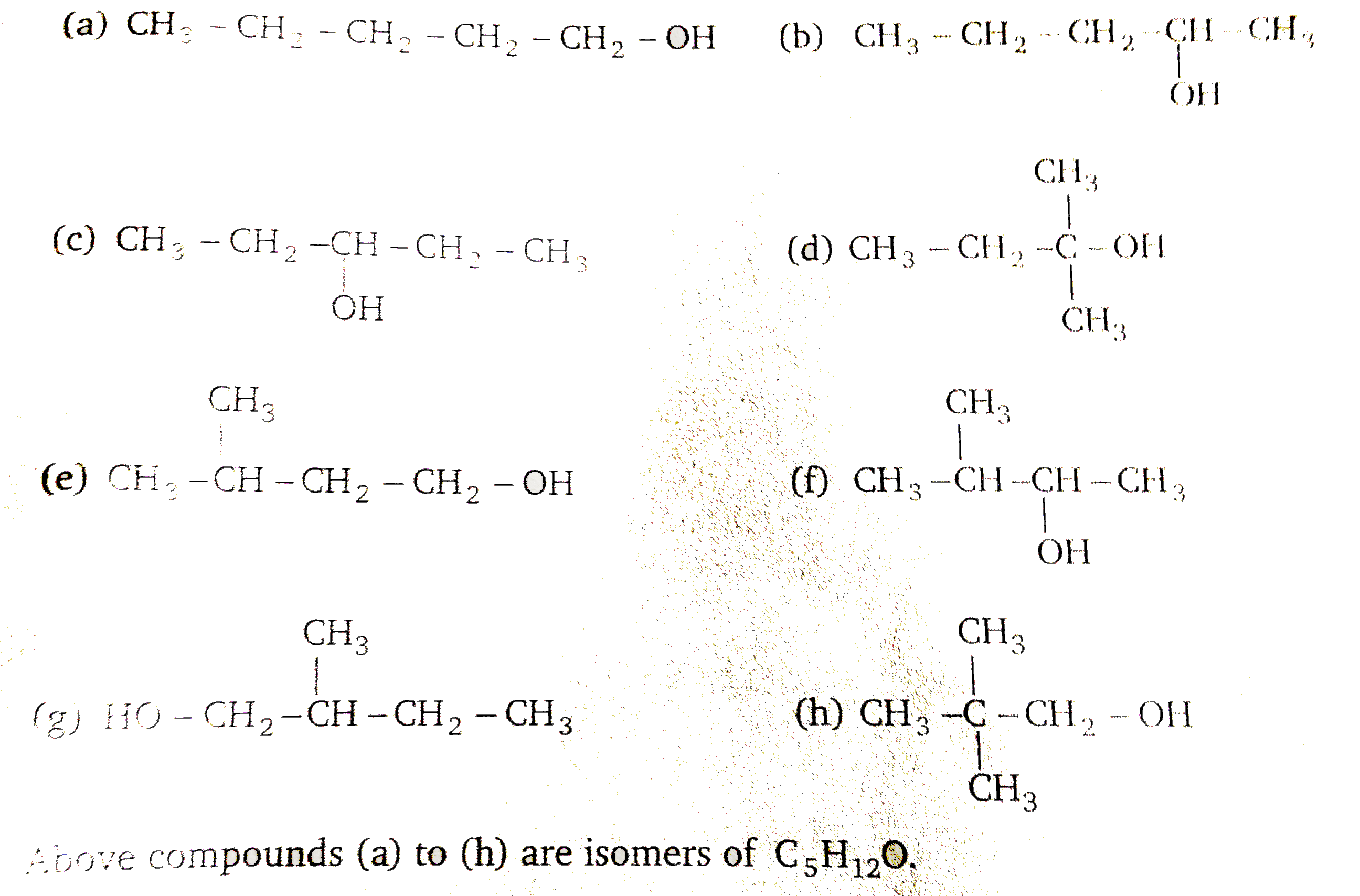An alcohol X on heating with concentrated H2SO4 gives an alkene Y which can show geometrical isomerism . The alcohol X is
A
CH3CH2CH(OH)CH3
B
(CH3)2C(OH)CH(CH3)2
C
(CH3)3C(OH)
D
(CH3)2C(OH)CH2CH3
Video Solution
Text Solution
The correct Answer is:A
CH3CH2(x)CHCH3H2SO4−−−→Cons.CH3H=CHCH3(Y)

|
Topper's Solved these Questions
- ALCOHOLS,PHENOLS AND ETHERSBOOK - NCERT FINGERTIPSCHAPTER - ALCOHOLS,PHENOLS AND ETHERSEXERCISE - Some Commercially Important Alcohols
4 Videos
- ALCOHOLS,PHENOLS AND ETHERSBOOK - NCERT FINGERTIPSCHAPTER - ALCOHOLS,PHENOLS AND ETHERSEXERCISE - Ethers
17 Videos
- ALCOHOLS,PHENOLS AND ETHERSBOOK - NCERT FINGERTIPSCHAPTER - ALCOHOLS,PHENOLS AND ETHERSEXERCISE - Structures Of Functional Groups
2 Videos
- ALDEHYDES, KETONES AND CARBOXYLIC ACIDSBOOK - NCERT FINGERTIPSCHAPTER - ALDEHYDES, KETONES AND CARBOXYLIC ACIDSEXERCISE - Assertion And Reason
15 Videos
Similar Questions
Knowledge Check
which alkene will not show geometrical isomerism ?
AXYC=CXYBXYC=CXZCXYC=CZWDXYC=CXXFormic acid (HCOOH) on heating with concentrated H2SO4 gives
ACO+CO2+H2OBCO2+H2OCCO+H2ODCO+H2An alcohol (A) on heating with concentrated H2SO4 gives alkene (B) as major product and (B) can shown the geometrical isomerism . The compound (A) is :
A(CH3)2C(OH)CH(CH3)2B(CH3)2C(OH)CH2MeCCH3CH2CH(OH)CH3Dall of the above
Ethyl alcohol when heated with conc. H2SO4 at 140∘C give
View SolutionWhen alcohol reacts with concentrated H2SO4 intermediate compound formed is
View SolutionWhen alcohol reacts with concentrated H2SO4 intermediate compound formed is
View SolutionWhen alcohol reacts with conc. H2SO4, intermediate compound formed is :
View SolutionWhen alcohol reacts with concentrated H2SO4, the intermediate species formed is
View Solution

